The Complete Works of ARISTOPHANES (c. 446 BC386 BC)  Contents
Contents  Delphi Classics 2013 Version 1
Delphi Classics 2013 Version 1  The Complete Works of ARISTOPHANES
The Complete Works of ARISTOPHANES 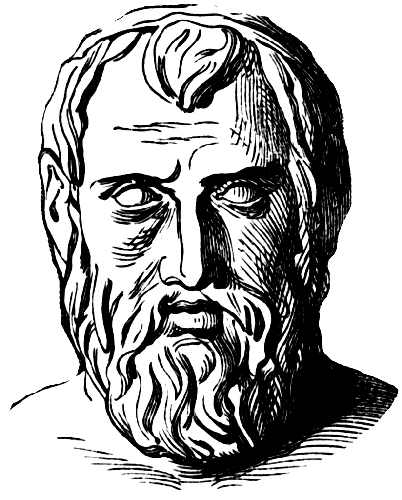 By Delphi Classics, 2013
By Delphi Classics, 2013
The Translations

Aristophanes birthplace Athens
THE ACHARNIANS

Anonymous translation for the Athenian Society, London, 1912 This is the earliest of Aristophanes eleven extant plays, which was produced in 425 BC, winning first place at the Lenaia festival. One of the lesser festivals of Athens, the Lenaia dramatic competition, which was held in honour of Dionysus, took place in Athens in the month of Gamelion, approximately corresponding to January. The play is notable for its yearning demands for an end to the Peloponnesian War and for Aristophanes spirited response to the attacks he suffered for his previous play, now lost, The Babylonians . The demagogue politician Cleon had reviled the last play as a slander against the Athenian polis and so Aristophanes used The Acharnians to refute Cleons accusations and to withstand political intimidation. The Peloponnesian War was already into its sixth year when The Acharnians was produced.
The Spartans and their allies had been invading Attica each year, burning and looting farm property in order to provoke the Athenians into a land battle that they could not win. The Athenians always remained behind their city walls until the enemy returned home, whereupon they would march out to wreak revenge on their pro-Spartan neighbours, Megara in particular. The war had already resulted in daily privations for Athens, with starvation and plague, and yet democratic Athens continued to be guided by the pro-war faction led by politicians like Cleon. Aristophanes earlier play, The Babylonians , had depicted the cities of the Athenian League as slaves grinding at a mill and it had been performed at the City Dionysia in the presence of foreigners. Cleon had subsequently prosecuted the playwright for slandering the polis. Aristophanes was already planning his revenge when The Acharnians was produced and it includes veiled references that he would have much greater revenge on the politician in his next play, The Knights .
The Acharnians captures the genuine hunger for peace felt by the Athenians at a time when the city was suffering from hardships of an unrelenting war with no end within sight. The play concerns the middle-aged Athenian Assembly man Dikaiopolis, who is tired of the war and miraculously obtains a private peace treaty with The Spartans, allowing him to enjoy the benefits of peace, in spite of opposition and envy from his fellow Athenians. Among his opponents are the plays chorus, a mob of aged farmers and charcoal burners from Acharnae, who are tough veterans of past wars and have grown to hate the Spartans for destroying their farms and so despise anyone who talks peace. The Structure of Old Comedy The structural elements of a typical Aristophanic comedy can be summarised as follows:
- prologue - an introductory scene with a dialogue and/or soliloquy addressed to the audience, expressed in iambic trimeter and explaining the situation that is to be resolved in the play;
- parodos - the arrival of the chorus, dancing and singing, sometimes followed by a choreographed skirmish with one or more actors, often expressed in long lines of tetrameters;
- symmetrical scenes - passages featuring songs and declaimed verses in long lines of tetrameters, arranged symmetrically in two sections such that each half resembles the other in meter and line length; the agon and parabasis can be considered specific instances of symmetrical scenes:
- parabasis - verses through which the Chorus addresses the audience directly, firstly in the middle of the play and again near the end (see the section below Parabasis);
- agon - a formal debate that decides the outcome of the play, typically in anapestic tetrameter, though iambs are sometimes used to delineate inferior arguments;
- episodes - sections of dialogue in iambic trimeter, often in a succession of scenes featuring minor characters towards the end of a play;
- songs (strophes/antistrophes or odes/antodes) - often in symmetrical pairs where each half has the same meter and number of lines as the other, used as transitions between other structural elements, or between scenes while actors change costume, and often commenting on the action;
- exodus - the departure of the Chorus and the actors, in song and dance celebrating the heros victory and sometimes celebrating a symbolic marriage.
The rules of the competition did not prevent a playwright arranging and adjusting these elements to suit his own wishes. For example, in The Acharnians there is no formal agon whereas in The Clouds there are two agons .

An ancient bust of the playwright CONTENTS
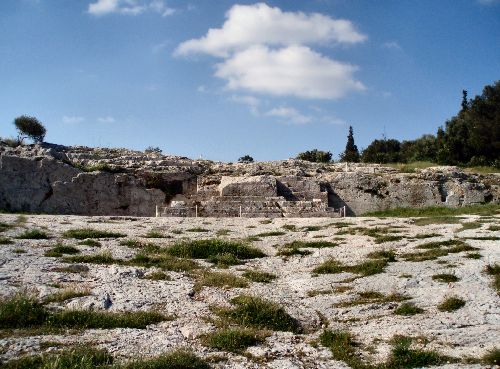
The Pnyx is a hill in central Athens, where the Athenians gathered to host their popular assemblies, thus making the hill one of the earliest and most important sites in the creation of democracy.
The Acharnians opens at this location. INTRODUCTION This is the first of the series of three Comedies The Acharnians, Peace and Lysistrata produced at intervals of years, the sixth, tenth and twenty-first of the Peloponnesian War, and impressing on the Athenian people the miseries and disasters due to it and to the scoundrels who by their selfish and reckless policy had provoked it, the consequent ruin of industry and, above all, agriculture, and the urgency of asking Peace. In date it is the earliest play brought out by the author in his own name and his first work of serious importance. It was acted at the Lenaean Festival, in January, 426 B.C., and gained the first prize, Cratinus being second. Its diatribes against the War and fierce criticism of the general policy of the War party so enraged Cleon that, as already mentioned, he endeavoured to ruin the author, who in The Knights retorted by a direct and savage personal attack on the leader of the democracy. The plot is of the simplest.
Dicaeopolis, an Athenian citizen, but a native of Acharnae, one of the agricultural demes and one which had especially suffered in the Lacedaemonian invasions, sick and tired of the ill-success and miseries of the War, makes up his mind, if he fails to induce the people to adopt his policy of peace at any price, to conclude a private and particular peace of his own to cover himself, his family, and his estate. The Athenians, momentarily elated by victory and over-persuaded by the demagogues of the day Cleon and his henchmen, refuse to hear of such a thing as coming to terms. Accordingly Dicaeopolis dispatches an envoy to Sparta on his own account, who comes back presently with a selection of specimen treaties in his pocket. The old man tastes and tries, special terms are arranged, and the play concludes with a riotous and uproarious rustic feast in honour of the blessings of Peace and Plenty. Incidentally excellent fun is poked at Euripides and his dramatic methods, which supply matter for so much witty badinage in several others of our authors pieces. Other specially comic incidents are: the scene where the two young daughters of the famished Megarian are sold in the market at Athens as sucking-pigs a scene in which the convenient similarity of the Greek words signifying a pig and the pudendum muliebre respectively is utilized in a whole string of ingenious and suggestive double entendres and ludicrous jokes; another where the Informer, or Market-Spy, is packed up in a crate as crockery and carried off home by the Boeotian buyer.
Next page

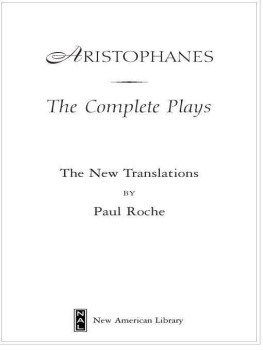
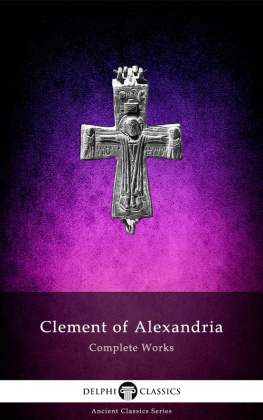
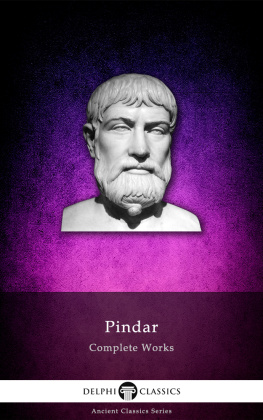
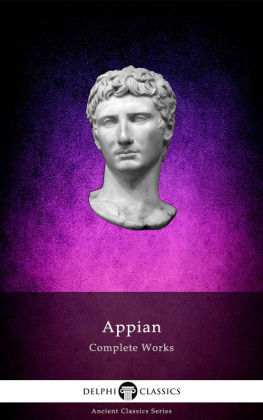
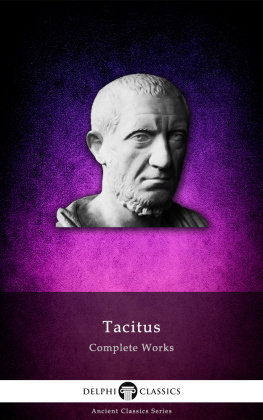
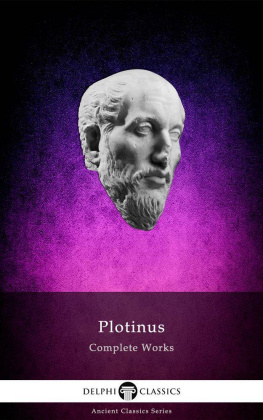
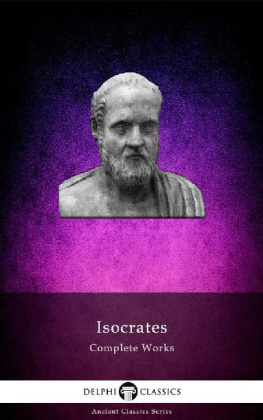
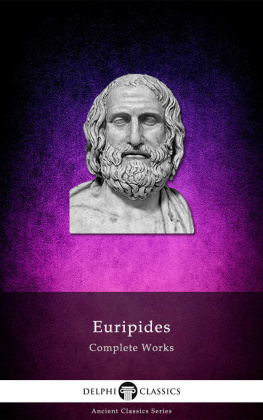
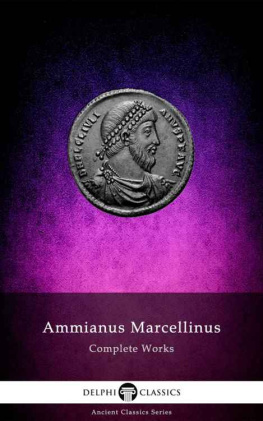
 Contents
Contents  Delphi Classics 2013 Version 1
Delphi Classics 2013 Version 1  The Complete Works of ARISTOPHANES
The Complete Works of ARISTOPHANES  By Delphi Classics, 2013
By Delphi Classics, 2013 Aristophanes birthplace Athens
Aristophanes birthplace Athens  Anonymous translation for the Athenian Society, London, 1912 This is the earliest of Aristophanes eleven extant plays, which was produced in 425 BC, winning first place at the Lenaia festival. One of the lesser festivals of Athens, the Lenaia dramatic competition, which was held in honour of Dionysus, took place in Athens in the month of Gamelion, approximately corresponding to January. The play is notable for its yearning demands for an end to the Peloponnesian War and for Aristophanes spirited response to the attacks he suffered for his previous play, now lost, The Babylonians . The demagogue politician Cleon had reviled the last play as a slander against the Athenian polis and so Aristophanes used The Acharnians to refute Cleons accusations and to withstand political intimidation. The Peloponnesian War was already into its sixth year when The Acharnians was produced.
Anonymous translation for the Athenian Society, London, 1912 This is the earliest of Aristophanes eleven extant plays, which was produced in 425 BC, winning first place at the Lenaia festival. One of the lesser festivals of Athens, the Lenaia dramatic competition, which was held in honour of Dionysus, took place in Athens in the month of Gamelion, approximately corresponding to January. The play is notable for its yearning demands for an end to the Peloponnesian War and for Aristophanes spirited response to the attacks he suffered for his previous play, now lost, The Babylonians . The demagogue politician Cleon had reviled the last play as a slander against the Athenian polis and so Aristophanes used The Acharnians to refute Cleons accusations and to withstand political intimidation. The Peloponnesian War was already into its sixth year when The Acharnians was produced.  An ancient bust of the playwright CONTENTS
An ancient bust of the playwright CONTENTS  The Pnyx is a hill in central Athens, where the Athenians gathered to host their popular assemblies, thus making the hill one of the earliest and most important sites in the creation of democracy.
The Pnyx is a hill in central Athens, where the Athenians gathered to host their popular assemblies, thus making the hill one of the earliest and most important sites in the creation of democracy.